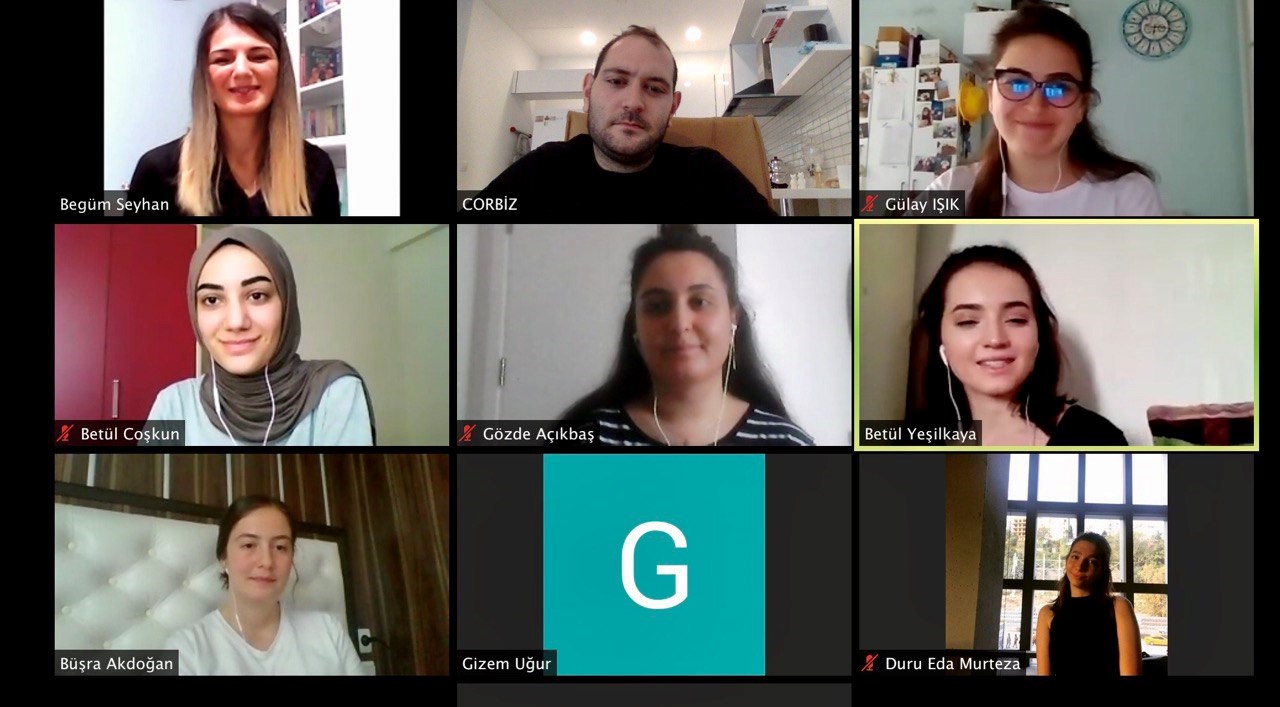Focus Group
Project “YOUth Ambassadors of Non-Formal Learning”
Country: Turkey
Organization: Türkonfed
Facilitator: Muharrem Enes Övünç – Begüm Seyhan
Date and location: 20.05.2020 – online
List of questions for Focus Group
- Do you think for NFE is important age, gender, nationality?
Our participants argue that it may be good to have a variety of features such as age, gender and race, but some of them can be important. Because people can discover the answers to questions such as what they are interested in and what they like better as they get older. Therefore, they think that the age factor is important. Also, language can be important to understand each other in an activity with non- formal learning methods.
- What does NFE mean to you? Can you define?
They think that the information learned with this method is longer lasting. One shared with us that because there is no memorization or uniform expression, you can benefit from your own experiences.
It also becomes participant-centered, as you can show yourself something by taking advantage of the experiences of people around you.
With learning in more comfortable conditions information, information becomes more memorable.
You can choose what you want to learn.
This process will lasting a lifelong.
- Have you ever been a participant in an NFE program? If yes – in which one?
Some of the participants participated in the Erasmus student exchange mobility or the European Voluntary Services Program. For this reason, most of them had experience before. One participant expressed his experiences as follows. I was able to go to EVS a year after attending pre-departure training. Nevertheless, Since the trainings were given through non-formal learning techniques, I was remembering everything even after a year. For this reason, I think this method is very sustainable for young people.
- Do you know something about Youth Law / Strategy / Action Plan, as well as other documents related to youth?
Young people do not have information about these documents. But they think that young people should be more effective in the decision making process in the national and international arena. They especially underlined that youth policy makers should be youth again.
- Have you ever participated in the youth decision-making process? If yes, in which one?
Our participant, who took part in a project of the Regional Development and Youth Movement, said that she was involved in a 2-day decision-making process with the Fırat Development Agency and the National Agency. What impact can young people have on regional development? What can they do in this area? She said they were looking for solutions to such questions. These reports would be evaluated together with Development Agencies. However, it could not be completed due to the coronavirus process. Even so, young people were able to take a chance to meet directly with the Development Agency and government officials.
- Do you think that more support from the Government is needed to improve the status of young people and in the NFE sphere? If yes, what are the benefits of this, and what are the disadvantages?
The responses of the participants are as follows:
While I was reaching the information and training about the field I wanted, I joined the civil society by researching to Google in my own effort. In my opinion, with the support of the state, cooperation can be made with the lecturers working in universities. Non-formal learning methods can thus become more common. If government support increases, it will appeal to a wider audience.
On the other hand, it may be a disadvantage for the government to implement this, as it is not possible to check it in the non-formal education system by exam. Therefore, I do not think it will be very common in schools.
- Does NFE activities help you for your personal development. If yes, how? If not, why?
– It is a method that increases the knowledge by sharing with the environment of the individual.
– I discover my aspects that I cannot discover in myself.
– It has a more lasting effect.
– Interaction.
– Transferring experiences and learning by doing
– Developing together.
- For you, why is it important to be involved in activities through non-formal education?
– To gain awareness.
– Meeting on a single common denominator.
– Working together to generate ideas.
– To gain many different perspectives in one problem.
– Meet new people.
– Lifelong learning.
– To develop the ability to live in another country and to recognize cultures.
– Self-improvement
– Learning to respect other ideas.







